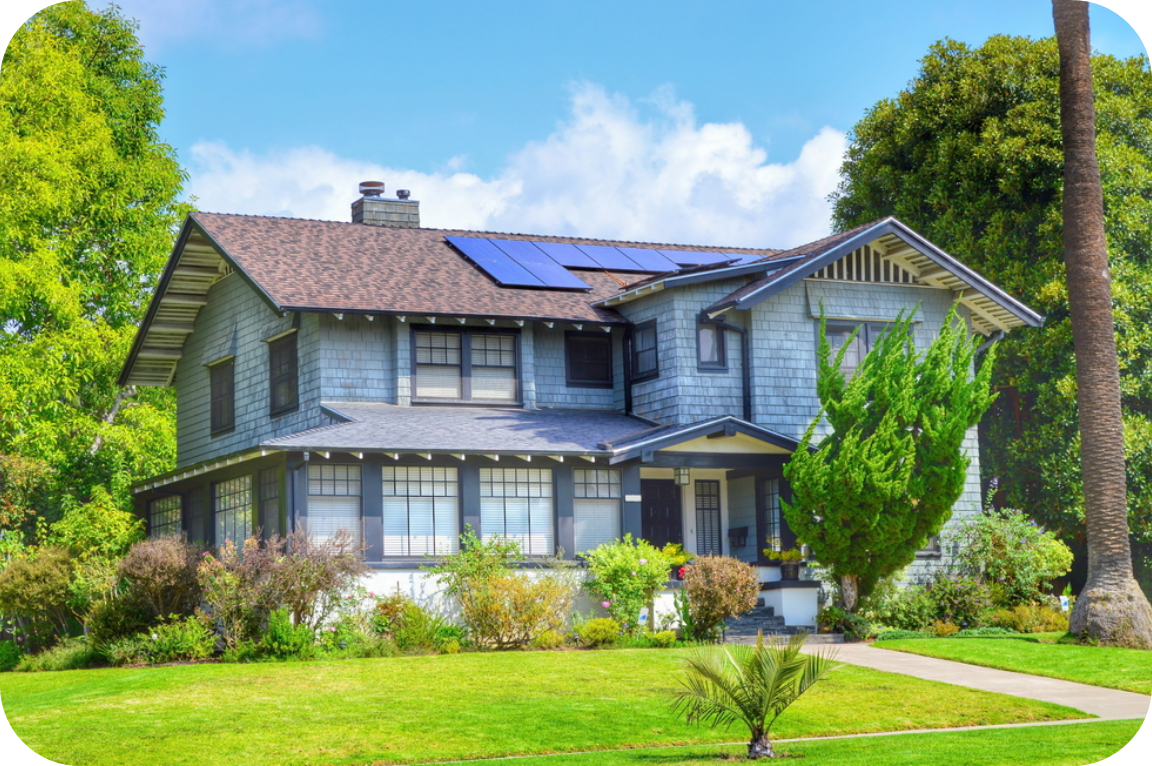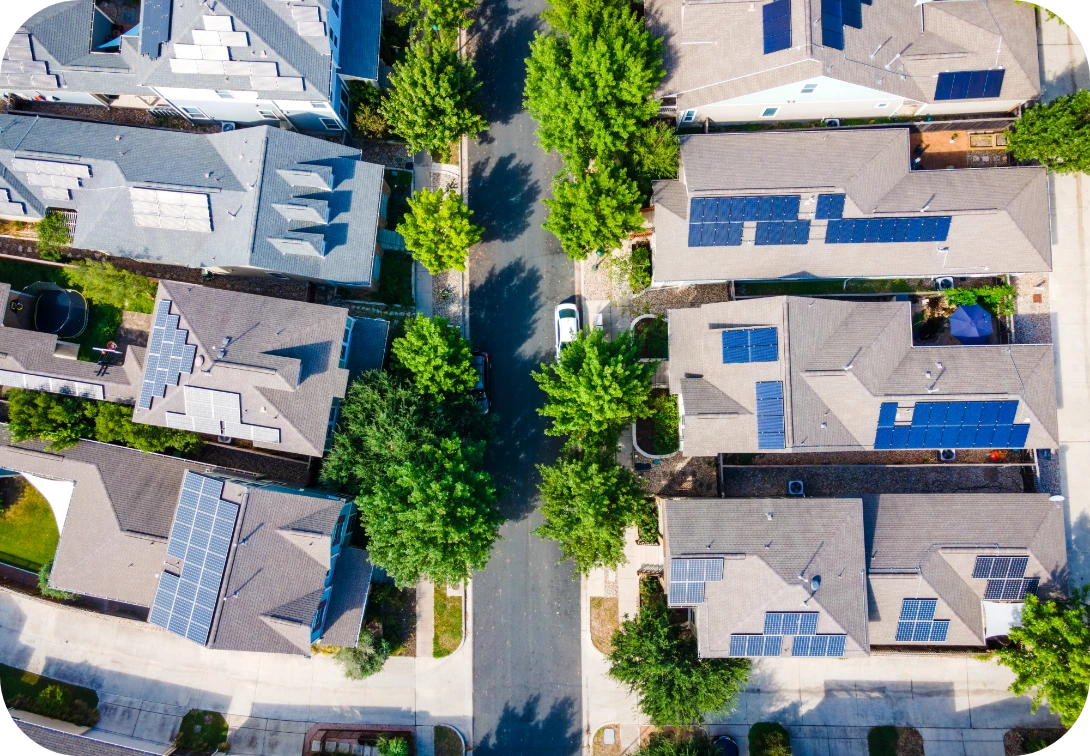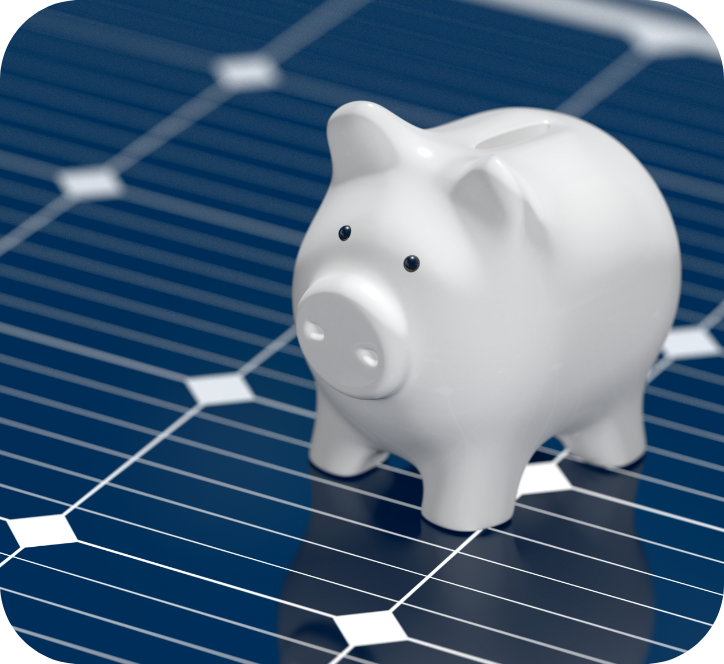Solar Panel Loans and Financing


Getting a solar panel system for your home is an exciting project. You may be saving money on your electricity bill while increasing the value of your home and helping the environment at the same time. We call that a win-win! However, many people shy away from solar because they think they can’t afford the overall upfront cost of going solar.
What most people don’t realize is that there are solar panel loans and other financing available that help make solar more affordable. With these options — including state and federal tax incentives, rebates, and credits — it’s never been easier or more cost-effective to add a solar system to your home. But how does solar financing work? Let’s find out!
Power Purchase Agreements (PPAs)
The Power Purchase Agreement or PPA is the most common method of solar financing for homeowners. It was popularized as a way for those wanting to secure more affordable solar electricity without taking on ownership of the system itself. In this arrangement, the solar system is “Third Party Owned” (TPO), typically by the solar provider, while the customer pays for the electricity that the system produces at a contracted rate.


In-House Financing
Many solar businesses offer solar panel loans and financing through their own company or a third-party lender. A in-house solar loan allows homeowners to take ownership of the solar system and benefit from available tax incentives while paying overtime. It is often possible to go solar for little to no upfront investment through in-house financing. These loans are typically unsecured and offer varying payment plans to meet your budget needs better.
At Axia, we work with EnFin along with other loan providers for our in-house financing, ensuring that we offer you the best financing options available.
Home Improvement Loans
IF you want to handle financing for your solar system yourself, there are plenty of alternatives in the market. You can apply for a home improvement loan through a bank, credit union, or online lender. Home improvement loans are typically a good option if you’re looking for solar financing with a fixed interest rate and monthly payment.



Home Equity Loans and HELOCs
For homeowners with a lot of equity in the property, a home equity loan or home equity line of credit (HELOC) could be a good source for solar panel loans and financing. Using a home equity loan is similar to a personal loan because you’ll get a fixed interest rate and repayment timeline while also having consistent monthly payments. For a HELOC, you are borrowing against a line of credit and may end the varying monthly payments.

FHA and Fannie Mae Loans
Solar panels are considered a home improvement upgrade, so it only makes sense that there are mortgage-type loans that would work for solar financing. For both the FHA 203(k) and Fannie Mae HomeStyle Renovation loans, new homebuyers and existing homeowners can add financing to their mortgage loan to cover home repairs or remodels, including solar panels.

What to Look For In An Unsecured Solar Loan
An unsecured loan does not require you to put up any collateral to back the loan. Many people look at unsecured options for solar panel loans and financing since they can secure the funds for the system without putting a lien on one of your assets.
These loans can be used for different projects, making them multi-purpose loans that are very attractive to borrowers. Nowadays, unsecured loans are more flexible, with lower interest rates and larger loan amounts.
Our solar financing partner, EnFin, provides affordable residential solar loans and is backed by the leading US solar manufacturer, Qcells, which allows them to offer the best rates for your home solar installation. You can learn more about our financing options by speaking with a solar advisor today.


Annual Percentage Rate
An annual percentage rate, or APR, is the total cost of your loan with interest and fees. The higher your solar loan rates, the more you can expect to pay overall. If you have good credit and a low debt-to-income ratio, you may get a lower interest rate from your lender.

Loan Term
The loan term is how long you have to pay off your loan. A longer term, like 15Y, gives you a lower monthly payment since it is spread out over more time, but you’ll pay more in interest. On the other hand, a loan term of 48 months will help you pay off the loan faster, but you’ll have a larger monthly payment.

Additional Fees
Most unsecured loan lenders charge an origination fee, which is essentially the cost for them to process and service your loan. This fee can be anywhere from 1% to 10% of your total loan amount, which you’ll need to consider when choosing the right solar panel loans and financing for your needs. You may also be subject to late fees, prepayment fees, and fees for payments that don’t go through.


If the above options won’t work for your solar financing needs, you could consider in-house financing through a solar company.
Ready to Electrify Your Life?
With various solar panel loans and financing options available, it’s a smart decision to switch to solar. If you’re ready to install solar panels on your home or just want to learn more about the benefits of solar, you can contact our Axia team today. Let us and our partner EnFin help you finance solar and electrify your life the simple way!
Learn More
Want to learn more about how solar works? Check out these related articles. Have a question you can’t find an answer to? Contact us or chat live with an expert today.
Related Articles
